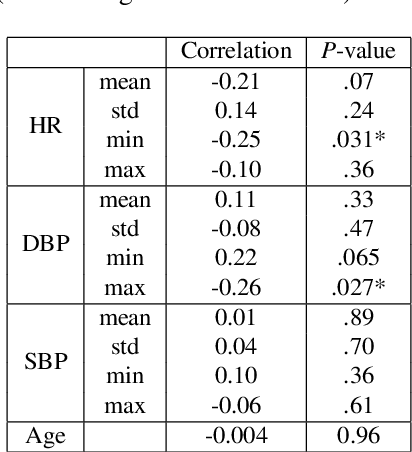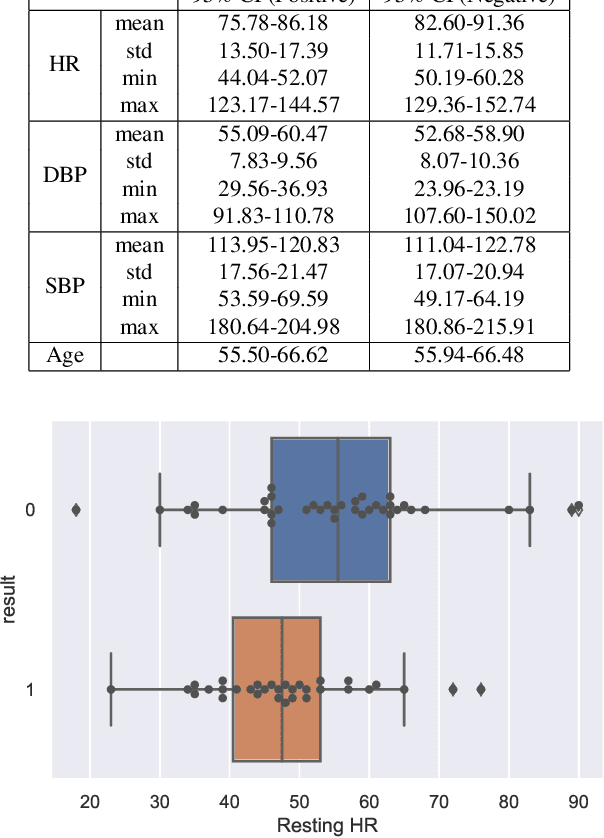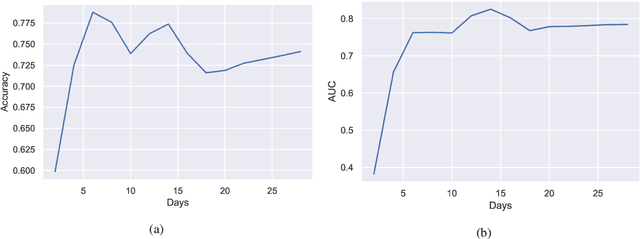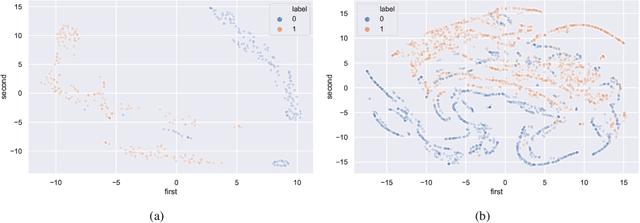Charles A Downs
Detection of COVID-19 Using Heart Rate and Blood Pressure: Lessons Learned from Patients with ARDS
Nov 12, 2020



Abstract:The world has been affected by COVID-19 coronavirus. At the time of this study, the number of infected people in the United States is the highest globally (7.9 million infections). Within the infected population, patients diagnosed with acute respiratory distress syndrome (ARDS) are in more life-threatening circumstances, resulting in severe respiratory system failure. Various studies have investigated the infections to COVID-19 and ARDS by monitoring laboratory metrics and symptoms. Unfortunately, these methods are merely limited to clinical settings, and symptom-based methods are shown to be ineffective. In contrast, vital signs (e.g., heart rate) have been utilized to early-detect different respiratory diseases in ubiquitous health monitoring. We posit that such biomarkers are informative in identifying ARDS patients infected with COVID-19. In this study, we investigate the behavior of COVID-19 on ARDS patients by utilizing simple vital signs. We analyze the long-term daily logs of blood pressure and heart rate associated with 70 ARDS patients admitted to five University of California academic health centers (containing 42506 samples for each vital sign) to distinguish subjects with COVID-19 positive and negative test results. In addition to the statistical analysis, we develop a deep neural network model to extract features from the longitudinal data. Using only the first eight days of the data, our deep learning model is able to achieve 78.79% accuracy to classify the vital signs of ARDS patients infected with COVID-19 versus other ARDS diagnosed patients.
 Add to Chrome
Add to Chrome Add to Firefox
Add to Firefox Add to Edge
Add to Edge